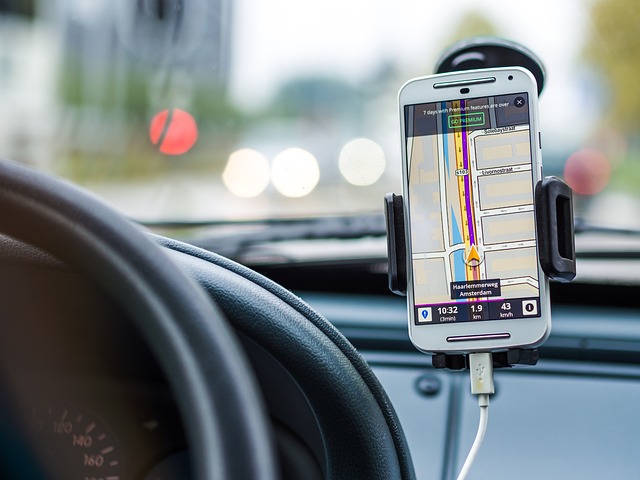In the UK, managing a Personal Contract Purchase (PCP) agreement's conclusion involves understanding and executing the PCP claims process efficiently. This process allows you to either settle the optional final balloon payment to own the car outright or trade it in, with the option to return the leased vehicle if you have negative equity. To do this, inform your finance provider of your decision to return the car, ensuring it's clean, maintained according to fair wear and tear standards, and any remaining issues are disclosed. You must also provide necessary documentation, including a completed termination form, original PCP agreement, proof of mileage, V5C registration certificate or V5c/2, and recent utility bills or bank statements for address verification. The finance provider will assess the car's condition and market value to determine your settlement figure, which is influenced by the age, condition, and mileage of the vehicle. To avoid complications, it's advisable to engage with your finance provider early in the process, particularly if you're considering a PCP claim for car ownership or are concerned about potential negative equity. Proactive communication and well-maintained records can help maximize your PCP claims UK settlement and ensure a smooth transition at the end of your agreement.
When the time comes to part ways with your PCP lease vehicle, navigating the return process is crucial. This article demystifies the PCP car return process in the UK, providing a comprehensive guide on what to expect and how to manage your PCP claims effectively. From understanding the intricacies of PCP contracts to the documentation you’ll need, each step is detailed to ensure a seamless transition. Additionally, we explore strategies for optimizing your PCP claim value and minimizing unexpected charges. Whether you’re at the end of your agreement or considering early return, this guide is tailored to help you through every phase of the process, ensuring your experience is as smooth as possible.
- Understanding PCP (Personal Contract Purchase) Car Return Process and PCP Claims in the UK
- Steps to Follow When Returning Your PCP Lease Vehicle in the UK
- Documentation Required for a Smooth PCP Car Return Process
- How to Handle Potential PCP Claims During the Return or Handover Procedure
- Tips for Maximizing Your PCP Claim Value and Minimizing Additional Charges Upon Return
Understanding PCP (Personal Contract Purchase) Car Return Process and PCP Claims in the UK

When a customer in the UK opts for a Personal Contract Purchase (PCP) agreement, they’re essentially leasing a car from a finance company for an agreed term, with the option to purchase it at the end of the contract. However, circumstances can change, and the need may arise to return the vehicle before the end of the contract period. The PCP car return process in the UK is structured to handle such scenarios through PCP claims. These claims are a formal request to the finance provider to settle the agreement based on the car’s current market value at the time of return, considering the remaining payments owed.
To initiate a PCP claim, the car must be returned in good condition, as per the terms outlined at the beginning of the contract. This typically involves adhering to fair wear and tear guidelines. The customer should notify their finance provider well in advance of the intended return date, providing all necessary documentation, including proof of vehicle condition, mileage records, and a completed settlement form. The finance company will then assess the car’s value, taking into account factors such as age, condition, and mileage. If the PCP claim is approved, the customer will receive a settlement figure which represents the outstanding balance minus any negative equity. This figure should be used to settle any outstanding finance, ensuring a clean return and closure of the agreement. It’s advisable for customers to review their PCP agreement for specific terms related to early termination or return, as these can vary between finance providers. Understanding the PCP claims process is crucial for a smooth transition back into car ownership or out of the agreement without any financial repercussions.
Steps to Follow When Returning Your PCP Lease Vehicle in the UK

When the lease term for your Personal Contract Purchase (PCP) vehicle in the UK comes to an end, it’s crucial to navigate the return process efficiently. The first step is to notify your finance provider of your intention to return the vehicle as per the agreed contract terms. This notification typically triggers a final settlement statement, which outlines any remaining balance due or potential refund if you’ve paid more than the anticipated final payment. Ensure all personal belongings are removed from the vehicle and that it is in good condition, reflecting typical wear and tear for its age and mileage. Any damage beyond this should be disclosed to avoid unexpected charges.
Next, arrange for the vehicle to be collected by the finance provider or take it to their designated drop-off point. At collection, the vehicle will undergo an assessment to determine if there are any excess wear and tear or damage charges. To mitigate additional costs, address any maintenance issues beforehand. Upon successful return, a settlement figure for the final payment will be calculated based on the agreed mileage, condition of the car, and its current value in the market. If you’ve opted for a PCP claim to purchase the vehicle, this process will also facilitate that transaction. It’s advisable to review the terms of your PCP agreement and contact your provider for specific guidance on the return process, as well as to understand your rights and obligations under the agreement. Keep in mind that timely adherence to the PCP car return process in the UK is essential for a smooth handover and to avoid any potential disputes or additional charges.
Documentation Required for a Smooth PCP Car Return Process

When returning a car under a Personal Contract Purchase (PCP) agreement in the UK, it’s crucial to have all necessary documentation ready to ensure a smooth handover during the PCP claims process. To facilitate this, you should gather the following documents: a fully completed and signed PCP agreement termination form, your original personal contract purchase agreement for reference, proof of mileage, which could be service history records or a mileage reading at the end of the agreement from an authorized dealer, and a clear photocopy of the V5C registration certificate or V5c/2 new keeper supplement if you are the registered keeper. Additionally, you will need to provide evidence of your current address, such as a recent utility bill or bank statement. Ensure that all documents are up-to-date and accurate, as any discrepancies can cause delays in your PCP claims process. It’s advisable to contact your finance provider prior to returning the vehicle to confirm their specific requirements for documentation, as this can vary between lenders. By having these documents prepared and adhering to the provider’s guidelines, you can ensure a hassle-free return of your car under PCP claims UK regulations.
How to Handle Potential PCP Claims During the Return or Handover Procedure

When navigating the PCP car return process in the UK, it’s crucial to address potential PCP claims systematically to ensure a smooth handover. Upon returning your vehicle under a Personal Contract Purchase (PCP) agreement, you have the option to pay the optional final balloon payment to own the car outright or opt to trade it in for another vehicle. If you choose to trade in your vehicle, any positive equity can be used as a deposit on your next car. However, if there is negative equity—where the outstanding finance exceeds the value of the car—it may affect your credit profile unless settled.
In the event of PCP claims, it’s imperative to engage with your finance provider well in advance of the return date. This allows for a thorough assessment and agreement on the settlement figure, which is based on the car’s anticipated value at the end of the agreement term. Ensure all necessary documentation is prepared, including service history, mileage records, and any additional options or accessories that may affect the final settlement amount. If you encounter unexpected issues such as damage to the vehicle or outstanding maintenance, address these promptly to avoid complications with your PCP claims. It’s also advisable to inform the finance provider of any such issues to discuss the potential impact on the settlement process. By proactively managing these aspects, you can ensure a transparent and fair resolution of your PCP car return process in the UK.
Tips for Maximizing Your PCP Claim Value and Minimizing Additional Charges Upon Return

When returning your personal contract purchase (PCP) vehicle, understanding how to maximize the value of your PCP claim and minimize any additional charges is crucial for a favorable financial outcome. To start, meticulously maintain service records and document all repairs and enhancements made during your contract term. This diligence can significantly bolster the residual value at the end of the agreement, leading to a higher settlement when you return the car. Additionally, ensure the vehicle is in the best possible condition at the point of return. A well-maintained car with no damage beyond expected wear and tear will likely result in a better assessment by the finance company.
In preparation for the return process, familiarize yourself with the terms of your PCP agreement, particularly regarding mileage. Exceeding your agreed upon mileage limit can incur additional charges, so plan your journeys to stay within this cap. Also, clean the car thoroughly; a spotless vehicle not only makes a good impression but also suggests that you have taken good care of it, potentially increasing the value of your PCP claim. Lastly, settle any outstanding fines or penalties, such as congestion charges or parking tickets, to avoid them being deducted from your final settlement. By adhering to these tips and maintaining transparent communication with your finance provider, you can navigate the PCP car return process in the UK effectively, ensuring you get the most value out of your PCP claim while minimizing any unexpected additional charges.
When concluding a PCP (Personal Contract Purchase) car return process in the UK, it is imperative to adhere to the outlined steps meticulously. This involves preparing the necessary documentation, understanding the intricacies of PCP claims, and managing potential claims effectively. By following the guidance provided on handling PCP claims UK-specific, you can ensure a smooth handover and potentially maximize your claim value while minimizing any additional charges. Remember that the details of your PCP agreement will dictate the exact process, so it is advisable to refer to your contract and lender’s specific guidelines. With careful planning and attention to the required paperwork, you can navigate the PCP car return process with confidence and ease, ensuring a satisfactory conclusion to your lease agreement.
